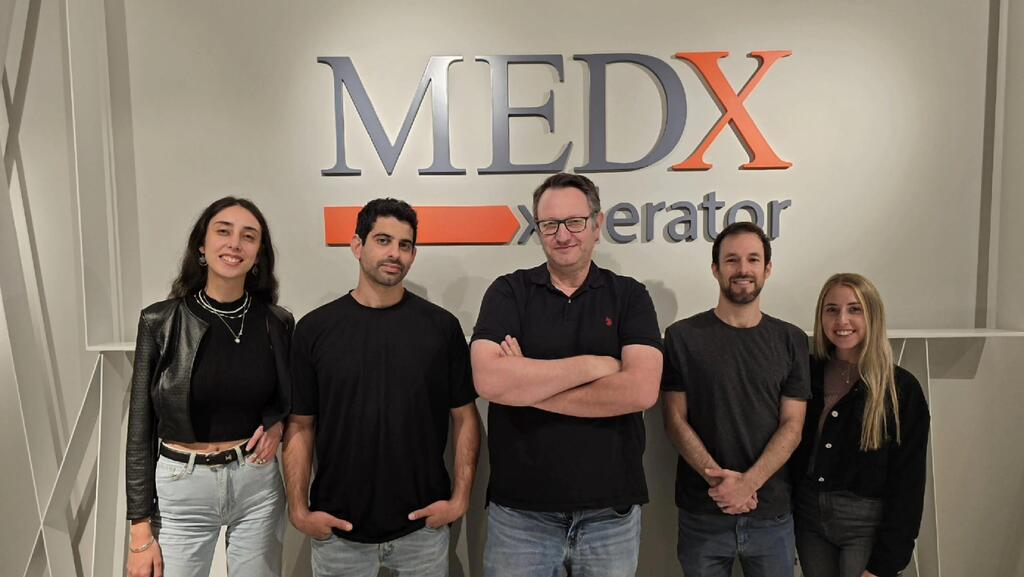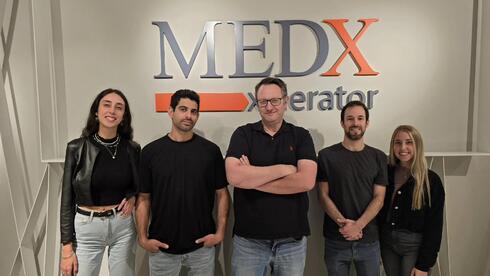
Boarding Pass
LifeCord's mitral chordal repair solution offers an alternative to open-heart surgery
The company has raised a total of $1.3 million for its heart treatment solution.
LifeCord has a strong intellectual property (IP) portfolio, including 52 patent families pending worldwide and 21 issued or allowed patents. This IP position ensures market exclusivity and gives LifeCord a significant competitive edge.
You can learn more about the company below.
Company Name: LifeCord
Sector: Healthcare
Product/Service description:
LifeCord is pioneering innovative solutions for mitral chordal repair, addressing mitral regurgitation, which affects approximately 2% of the global population. Our flagship product is a breakthrough leaflet-preserving device that avoids puncturing the leaflet and enables future interventions, aiming to disrupt the market with a safer, superior, and primary solution for degenerative mitral regurgitation (DMR) patients. The device offers a minimally invasive transfemoral alternative to open-heart surgery, meeting a critical need as a first-line therapy option. LifeCord is poised to be an important player in the rapidly growing market for mitral valve interventions which is already exceeding $2 billion.
Backed by a strong intellectual property portfolio, LifeCord secures a competitive advantage, protecting the core elements of its technology and reinforcing its market exclusivity.
As the only chordal mitral repair system that preserves the leaflet without puncturing, our device has demonstrated safety and efficacy in both acute and chronic GLP animal studies and is set for its first-in-human trial by Q2 2025.
Founder Bios:
Yaron David is the CEO of LifeCord, where he leads the development of pioneering mitral repair solutions in the cardiovascular field. With over 20 years of experience, Yaron has led teams from concept to product across various roles in cardiovascular innovation, focusing on stents, heart valves, and catheter design and development. He began his career as an engineer in the technological unit of the Intelligence Corps. Yaron holds a Bachelor’s degree in Mechanical Engineering and a Master’s degree in Biomedical Engineering, both from the Technion - Israel Institute of Technology.
Year of Founding: 2024
Last Investment Round: $1.3 Million
Last Investment Stage: Seed
Date of Last Investment: April 2024
Total investment to date: $1.3 Million
Investors: Our company originated through a collaboration between a strategic multinational corporation and a leading U.S. healthcare institution, with additional funding provided by the Israel Innovation Authority and the MEDX Xelerator.
Current number of employees: 4
Open positions: N/A
Website:
www.life-cord.com
Social Media:
https://www.linkedin.com/company/life-cord/
How was the idea born?
The concept for LifeCord emerged in collaboration with our partners— MEDX Xelerator, a strategic multinational medical device corporation, and a leading U.S. healthcare institution. Together, we aimed to address the significant gap in treatment options for degenerative mitral regurgitation (DMR).
DMR (0.9% of the general population and 4.5% over the age of 75) often results from leaflet prolapse caused by elongation or rupture of the chordae tendineae. LifeCord is developing a minimally invasive transcatheter system to repair these chordae, aiming to reduce regurgitation while preserving the mitral valve.
What is the need for the product?
The standard treatment for DMR is open-heart surgery, which, while effective, carries notable risks and limitations. LifeCord a minimally invasive transcatheter system aims to reduce complications, risks and improve long-term outcomes for patients.
How is it changing the market?
LifeCord’s solution marks a significant advancement in the treatment of DMR. Offering a minimally invasive, transfemoral alternative that maintains the integrity of the mitral leaflet, LifeCord’s device supports future interventions and overcomes the limitations of traditional surgical methods. This groundbreaking approach has the potential to transform treatment protocols, providing a safer, quicker option that is more accessible to a wider range of patients.
How big is the market for the product and who are its main customers?
The Ttrget market for LifeCord’s device is significant, with an estimated total addressable market (TAM) of approximately $2 billion in the U.S. This market is comprised of two primary groups of “customers”: First, high-risk patients who are not suitable candidates for open-heart surgery. Second, patients aged 55-75 who would benefit from a minimally invasive procedure, potentially delaying or even avoiding the need for open-heart surgery in the future.
Does the product exist already? If not - at what stage is it and when is it expected to hit the market?
LifeCord's product is currently in the preclinical stage, having successfully completed safety and efficacy testing in animal models. The device is projected to begin First-in-Human (FIH) trials in 2025, representing a crucial step toward regulatory approval and market entry.
Who are the main competitors in this sector and how big are they?
In our field, there are three main groups of solutions. The standard of care remains open-heart surgery, which, while effective, involves significant risks due to its invasive nature. Transcatheter Edge-to-Edge Repair (TEER) options, such as MitraClip and PASCAL, offer a less invasive approach by approximating the mitral valve leaflets to reduce regurgitation; however, they may limit future interventions without leaflet modification. The third category includes transfemoral Mitral chordal repair approaches currently being developed by several early-stage companies, aimed at advancing and improving the outcomes of mitral valve repair.
What is the added value that the founders bring to the company and the product?
CEO Yaron David, with over 20 years of experience in product development and 14 years in the cardiovascular field, leads the team, bringing extensive technical expertise and a proven track record in managing complex projects.
VP of R&D, Tomer Ben-Yehuda, adds over 12 years of experience in medical technology, strengthening the company's innovation and development capabilities. Their expertise is complemented by a strong network of industry connections and in-depth knowledge of regulatory and clinical processes. Additionally, our partners provide clinical and business insights and ecosystem connectivity, enabling LifeCord to excel.
What will the money coming in from the round be used for?
The funds raised will be allocated to completing the First-in-Human (FIH) trials, initiating work on the Early Feasibility Study (EFS), obtaining regulatory approvals, and further advancing the R&D pipeline.
In the "Startup Boarding Pass" section, CTech will cover the (relatively) small investments made in companies during the early stages of their existence - and the entrepreneurs and startups who have not yet had the opportunity to reveal their stories to the world. Please use the linked form and fill it out according to the guidelines. This form is intended for startups raising between $500,000 and $3 million from venture capital funds, angels, or official grants from Israeli and foreign institutions. If relevant, someone at CTech will be in touch for follow-up questions.
